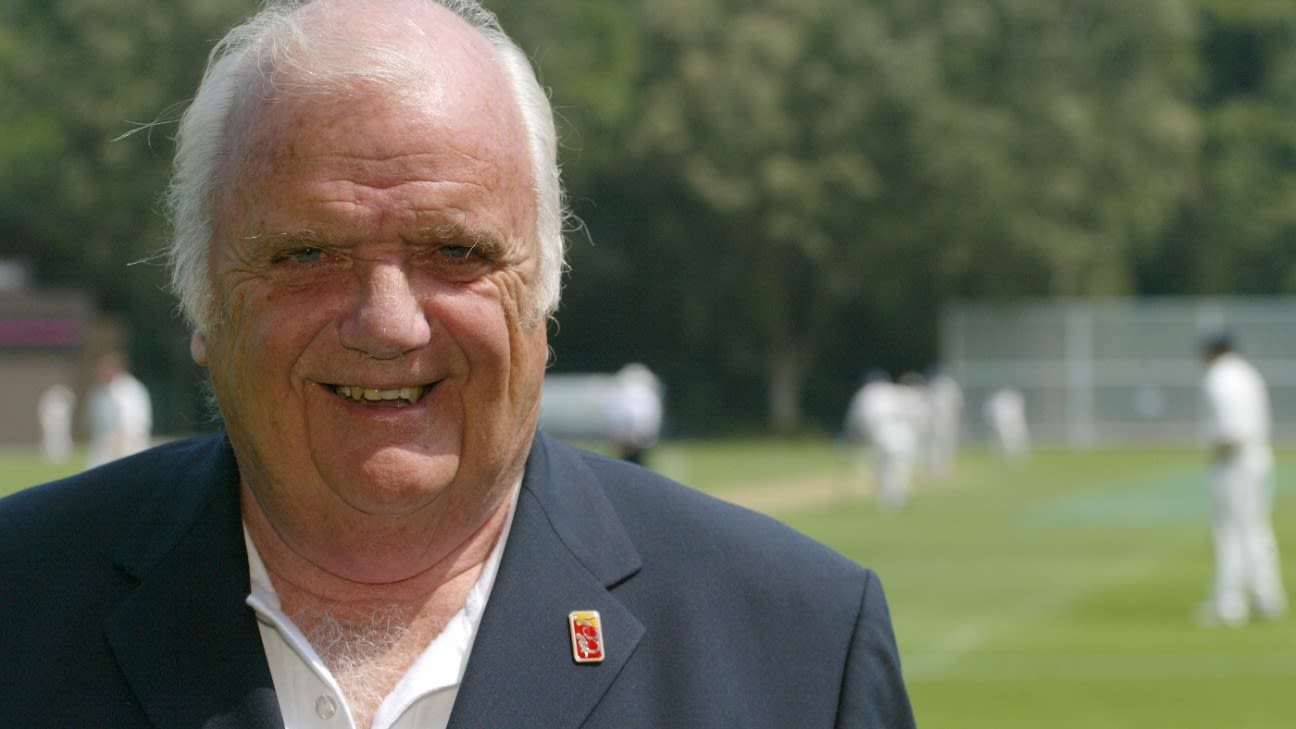As an offspinner who claimed 970 wickets in an 18-season first-class career, Marlar came close to England selection on a number of occasions in the 1950s, but was kept out of the side by the great Jim Laker, not to mention Fred Titmus and David Allen, both of whom offered more with the bat than his average of 9.72.
He did, however, play for the Rest of England against Surrey in the Champion County match in 1955, in which – as a nightwatchman – he achieved the rare distinction of being stumped second-ball for six, ostensibly as a protest after his captain Doug Insole asked him to change back out of his evening wear.
“As I was saying,” he is said to have remarked to Insole on his return to the dressing room, “I am not a nightwatchman.”
For Sussex, however, he was a stalwart, including a five-season stint as captain from 1955 to 1959, in which time Wisden declared his leadership “shrewd and skilful”. His finest hour with the ball came against Lancashire at Hove in 1955, when his match haul of 15 for 119 included 9 for 46 in the second innings, en route to a season’s best return of 139 wickets at 21.55.
Educated at Harrow, Marlar was also a three-times Cambridge Blue from 1951 to 1953, and his establishment credentials were cemented when he served as MCC’s president in 2005-06, during which time he was instrumental in forging cricketing links with Afghanistan that would ultimately lead to the country attaining Test status.
After retiring from cricket, his stint as Sunday Times correspondent spanned both Kerry Packer’s World Series Cricket breakaway, and the emergence in the early 1990s of Shane Warne, of whom Marlar was the first to dub his dismissal of Mike Gatting at Old Trafford in 1993 “the ball of the century”.
Marlar was born in Eastbourne in January 1931 and made his debut for Sussex in July 1951 against Kent at Hastings. Away from cricket, he established a successful headhunting business, headquartered in Sloane Square and with clients around the world.
He was Sussex’s chairman in 1996 and 1997, a period which helped lay the groundwork for the outstanding side that won the club’s first County Championship in 2003, and two further titles in 2006 and 2007.
In a statement, Sussex confirmed that Marlar had died at Epsom General Hospital on September 30, surrounded by his family, and recalled him as “one of the most important figures in the history of Sussex Cricket”. He had attended a memorial for his fellow club legend Ted Dexter in the Long Room at Lord’s earlier this month, in which the statement added, he had been “in magnificent form, upbraiding Sir Andrew Strauss about the High Performance Review and holding court in the style as only he could.
“He took a passionate and lifelong interest in the county club of his birth and visited the ground in August this year for a memorable day, in the boardroom, with Mike Griffith and Johnny Barclay, all three MCC presidents and Sussex captains,” the statement added.
“Robin Marlar was a great man of cricket and will be deeply missed by all at Sussex Cricket and especially by his friends at the Sussex Cricket Museum which he supported passionately. Our thoughts are with his daughters Sarah, AJ, Kate and Tammy and his sons Algy and James.”
